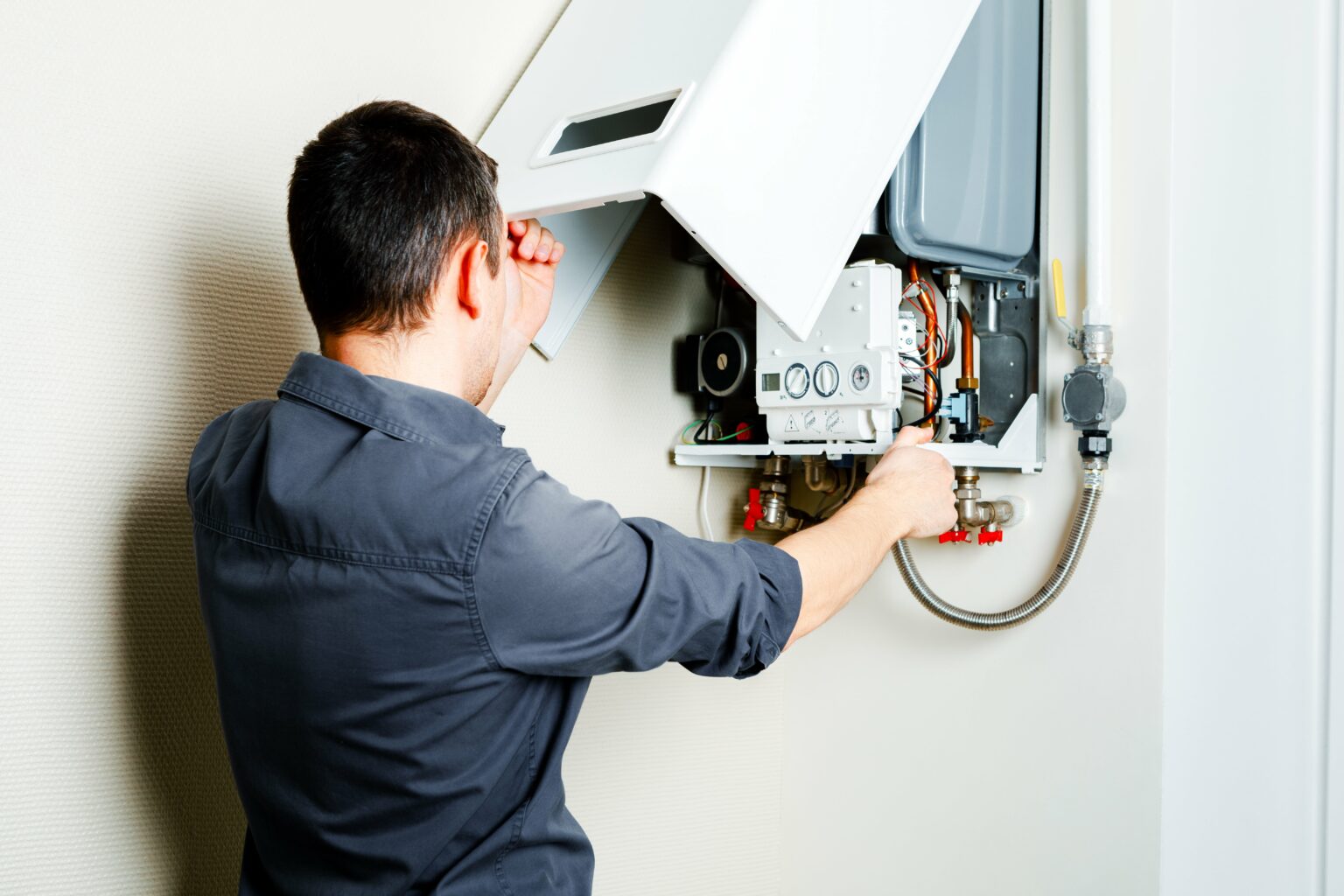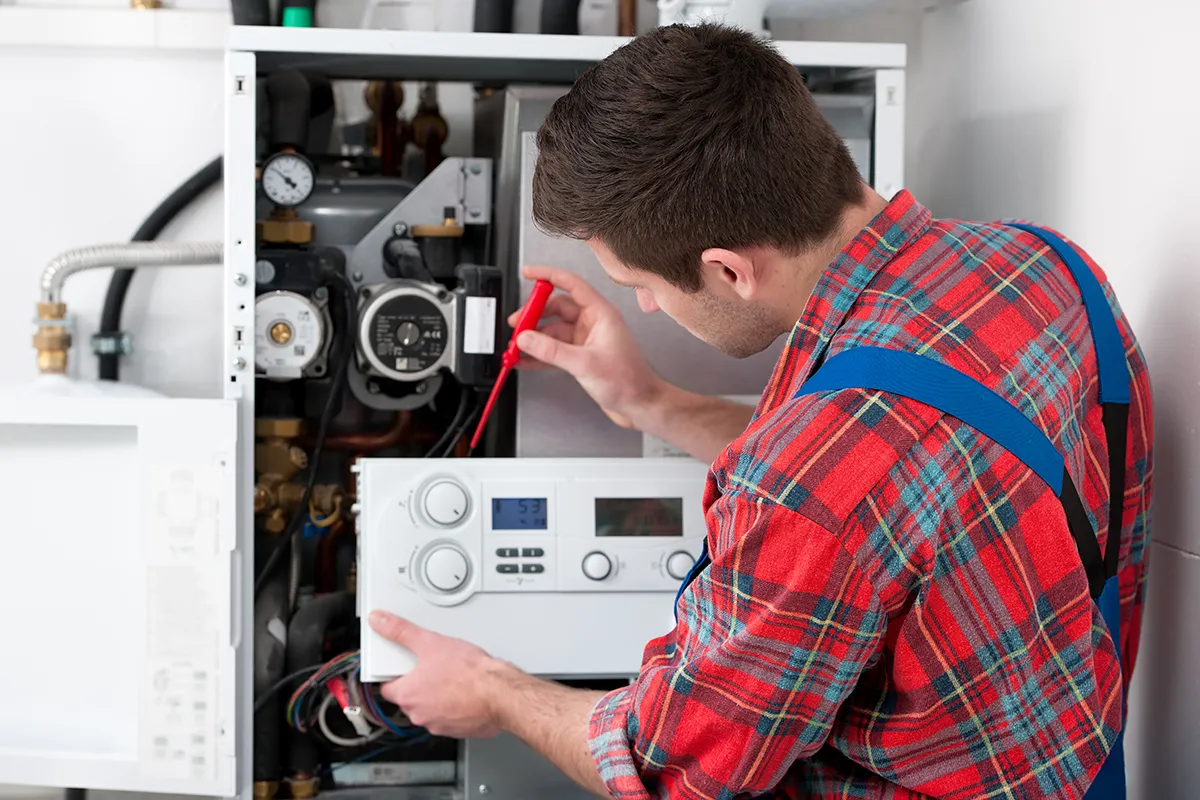
Maintaining a gas boiler includes regular servicing to certify safety, competence, and longevity. Here’s a detailed guide on the process for Gas Boiler Service in Sussex, broken down into weekly, monthly, and annual tasks.
Weekly Maintenance
Visual Inspection
Check for Leaks:
Look around the boiler for any signs of water or gas leaks.
Inspect the Pressure Gauge:
Ensure the pressure is within the recommended range, typically between 1 and 2 bar.
Check for Unusual Noises:
Listen for any strange sounds which could indicate underlying issues.
Ventilation
Ensure Proper Ventilation:
Make sure the area around the boiler is free from obstructions to allow proper airflow and prevent overheating.
Flue Inspection
Check Flue for Obstructions:
Ensure the flue is clear of blockages, which can cause dangerous fumes to build up inside the home.
Monthly Maintenance
System Bleeding
Radiators:
Bleed the radiators to remove any trapped air, which can cause cold spots and reduce efficiency.
Expansion Vessel:
Check the expansion vessel pressure and ensure it is within the correct range.
Cleaning
Clean the Boiler’s Exterior:
Wipe down the exterior of the boiler to keep it free from dust and debris.
Condensate Trap:
Ensure the condensate trap is free of debris and properly draining.
System Health Check
Check Thermostat Settings:
Ensure the thermostat is running properly and set to the chosen temperature.
Inspect Pipe Insulation:
Check that the pipes are well-insulated to prevent heat loss and freesing during colder months.
Annual Maintenance
Professional Servicing
Hire a Gas Safe Registered Engineer:
Only qualified professionals should perform detailed annual maintenance.
Boiler Inspection:
The engineer will conduct a thorough inspection of all boiler components, including the heat exchanger, burner, and ignition system.
Gas Pressure Check:
Ensure that the gas pressure is within the manufacturer’s specifications.
Comprehensive Cleaning
Clean Internal Components:
The engineer will clean the internal parts of the boiler, including the burner, heat exchanger, and fan, to ensure optimal performance.
Remove Limescale and Debris:
Describe the system if necessary to remove any limescale or debris buildup that can reduce efficiency.
Safety Checks
Carbon Monoxide Detector:
Check and exchange the batteries in your carbon monoxide detector to make certain it is working appropriately.
Ventilation and Flue Inspection:
Ensure that all ventilation and flue pathways are clear and functioning correctly to prevent the buildup of harmful gases.
System Efficiency
Check for System Leaks:
Ensure there are no leaks in the system, which can lead to water damage and inefficiency.
Test Boiler Controls:
Ensure that all controls are working correctly and that the system responds appropriately to commands.
Seasonal Tasks
Pre-Winter Check
System Test Run:
Run the heating system for a few hours before the winter to certify it is working well.
Anti-Freese Measures:
Make sure the system has adequate anti-freese protection to prevent pipe freesing.
Post-Winter Check
Inspect for Wear and Tear:
Look for any signs of wear and tear that may have occurred during the heavy usage in winter.
Service the System:
Do any essential repairs or servicing to tackle problems recognised during the post-winter checkup.

Record Keeping
Maintenance Log:
Keep a detailed log of all maintenance activities, including dates, tasks performed, and any issues identified.
Service Records:
Maintain records of annual professional servicing, including receipts and reports from the engineer.
Additional Tips for Gas Boiler Maintenance
Water Quality
Check Water Hardness:
In areas with hard water, consider installing a water softener to prevent limescale buildup in the system.
System Flushing:
Periodically flush the system to remove any sludge or debris that can hinder performance.
Energy Efficiency
Smart Thermostats:
Consider installing a smart thermostat to improve efficiency and control over your heating system.
Insulate Your Home:
Make sure that your home is well-insulated to decrease the workload on your boiler and expand energy efficiency.
Importance of Regular Maintenance
Safety
Prevent Carbon Monoxide Leaks:
Routine maintenance helps to avoid hazardous carbon monoxide leaks.
Ensure Safe Operation:
Notice and fix any potential threats before they become major problems.
Efficiency
Improve Performance:
Routine servicing certifies that your boiler works at top competence, reducing energy ingestion.
Extend Lifespan:
Appropriate maintenance can knowingly extend the lifespan of your boiler, saving you money on replacements.
Cost Savings
Reduce Repair Costs:
Identifying and addressing minor issues early can avoid costly repairs later.
Lower Energy Bills:
A well-organised boiler uses less fuel, leading to inferior energy bills.
Conclusion:
Weekly, monthly, and annual tasks, along with regular checks, can help you maintain your boiler in ideal condition. By following these rules and keeping detailed records, you can ensure dependable performance and avoid avoidable breakdowns, especially during the cold winter months. Committed to sustainability, we help clients optimise their heating systems for maximum productivity. Trust EDR Heating Services for a
 Daily Blogger News Stay updated with the latest trends and insights. Your reliable source for daily updates and information.
Daily Blogger News Stay updated with the latest trends and insights. Your reliable source for daily updates and information.







